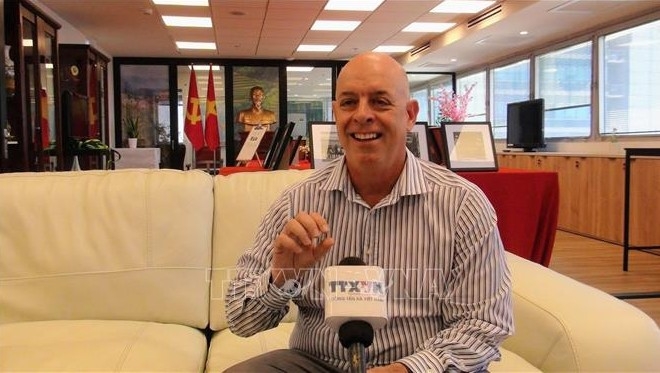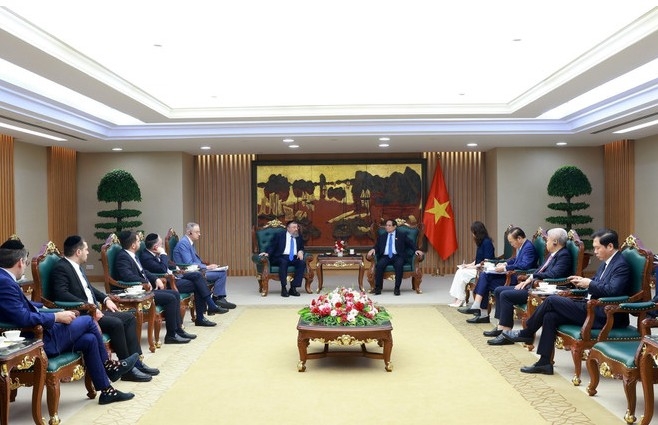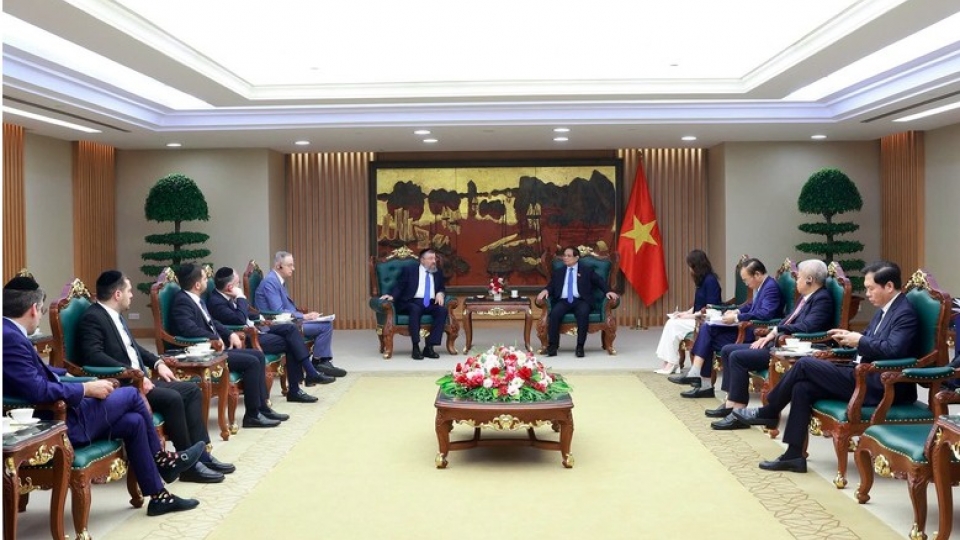Vietnam seen as a country with long-term vision and strong cooperation potential
VOV.VN - Eyal Buvilski, President of the Israel-Vietnam Friendship Association and former Deputy Ambassador of Israel to Vietnam, has expressed positive impressions of Vietnam, its people, reform journey, leadership, and the growing potential for bilateral cooperation.

These reflections were shared on the occasion of the 80th anniversary of the August Revolution (August 19, 1945 – August 19, 2025) and National Day (September 2, 1945 – September 2, 2025).
At the beginning of the conversation, Buvilski recalled that he first came to know Vietnam in 2001 when he began his diplomatic post in Hanoi, and since then, the country had held a special place in his heart. From the very beginning, he said he had always sought ways to stay connected with this land.
He emphasized that all his assessments stem from a deep understanding, close ties, and genuine respect for Vietnam’s culture and people. As someone who had witnessed Vietnam’s transformation over more than two decades, he noted that although he left Vietnam in 2003, he had returned many times, most recently just a few months ago. Each time, he saw what he described as “a completely different country” – something he said he had never encountered anywhere else in the world, including places where he had worked.
According to Buvilski, Vietnam’s rapid and sustainable development is the result of a combination of two key factors: its people and its natural resources. He remarked that Vietnamese people are hardworking, ambitious, and deeply proud of their national identity. Even at 5 or 6 in the morning, he observed, people are already out exercising, working, and going about their daily lives, something rarely seen elsewhere.
He also expressed admiration for how Vietnam has skillfully leveraged its natural advantages. With favorable weather and fertile land, Vietnam is well-suited for agriculture and many other sectors, he said. Infrastructure such as roads, seaports, and airports, he noted, is already in place. This combination, along with visionary and sound leadership, in his view, has laid the foundation for Vietnam’s current development. He considered Vietnam one of the world’s leading manufacturing centers today, adding that in Israel, he feels proud whenever he walks into a store and sees products from Vietnam, from coffee and tea to footwear, with “Made in Vietnam” labels on nearly everything.

Speaking about Vietnam’s leadership, Buvilski said the key difference between Vietnam and many other countries lies in its vision and leadership capacity. He appreciated the continuity and coordination within the political system, as well as the commitment to carrying out long-term plans set by leaders.
He recalled that when he first arrived in Vietnam, he had heard about five-year and 20-year plans, and initially thought they might be rhetorical, just like in many other countries. But after five years, he saw actual results. After 20 years, everything had changed completely.
For him, this demonstrated that Vietnam not only had vision, but also the capacity to realize its aspirations. He highlighted the rare continuity in the country’s leadership, where one leader sets a goal and the successor continues to carry it forward. According to him, the strong cohesion between central and local leadership is a key factor contributing to the country’s effective governance and development.
Reflecting on the 32 years of diplomatic ties between Vietnam and Israel (1993–2025), Buvilski affirmed that the relationship has been built on deep-rooted friendship between the two peoples. He viewed the economy as a central pillar with extensive cooperation potential, ranging from agriculture and technology to large-scale production.
He stated that any small idea in Israel could become a major product if combined with a Vietnamese partner. Israel, he explained, has strong capabilities in technology, knowledge, and scientific research, while Vietnam has vast potential, it knows how to manufacture and can do things Israel cannot, such as scaling up production. A good idea in Israel, when paired with a Vietnamese partner, could turn into a large-scale product. For this reason, he believed there is still a very large foundation for deepening bilateral economic cooperation.
Buvilski also underlined the importance of collaboration at all levels: between research institutions, between governments, and between private companies in both countries. He believed the Vietnamese government could learn a great deal from Israeli firms operating globally. In his view, Vietnam has yet to fully tap its economic potential, and there are still many untapped markets for Vietnamese exports. By combining Israeli knowledge with Vietnam’s capacity, vision, and economic strength, he believed the two sides could go much further. He underscored that Israel is always ready to support that process.
Regarding prospects for future economic cooperation, he said that Israel is currently in a state of war, with conflict in the region and a dangerous security environment. As a result, there are currently fewer economic activities between Vietnam and Israel, less than what Israel would like to see. However, he expressed hope that the war would end soon, and when that happens, there will be many economic opportunities for Vietnamese companies in Israel in fields such as agriculture, construction, and manufacturing.
He also said that through economic cooperation, the two sides could help contribute to regional peace, for example, by forming joint ventures. He believed that Vietnam’s potential in the bilateral relationship with Israel, especially in the economic and political spheres, is only just beginning. He said he looked forward to seeing further progress in this area in the future.
Buvilski also highlighted the role of tourism and people-to-people exchange as important bridges in the bilateral relationship, particularly as more and more Israelis choose Vietnam as a favorite destination. He affirmed that Israeli people hold great affection for Vietnam and always want to travel there when they have the opportunity. According to him, every tourist returning from Vietnam becomes a new “ambassador” for the country in Israel – this, he said, is a major source of untapped potential.
Concluding the interview, Eyal Buvilski extended his congratulations to the people of Vietnam on the occasion of National Day (September 2). He stressed that the Vietnamese people have true friends in Israel. He also expressed hope that more Vietnamese entrepreneurs, scholars, and tourists would visit Israel to strengthen greater mutual understanding, deeper cooperation, and a better future together.




